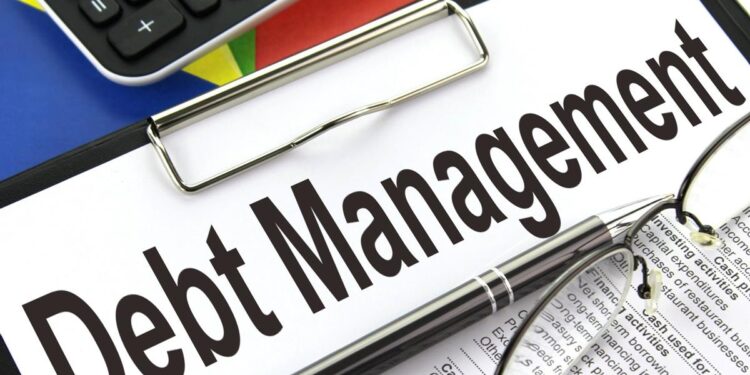Debt can be a heavy burden on individuals and families alike. Whether it’s credit card debt, medical bills, or student loans, the stress of making payments on time and avoiding late fees can take a toll on a person’s mental health and financial well-being. Fortunately, there are short-term financial solutions available that can help manage debt and ease the pressure. These include;
Create a Budget
One of the first steps in managing debt is to create a budget. A budget helps to track income and expenses, identify areas where money is being spent unnecessarily, and allocate funds to debt repayment. A budget should include all sources of income, including wages, tips, and any side hustles. Fixed expenses such as rent, car payments, and insurance should also be included, as well as variable expenses such as groceries, entertainment, and clothing. Once all expenses have been accounted for, it’s important to allocate a portion of income towards debt repayment. This can be done by either prioritizing high-interest debts or by using the snowball method, which involves paying off the smallest debts first.
Consolidate Debt
Debt consolidation involves combining multiple debts into a single loan with a lower interest rate. This can make payments more manageable and reduce the amount of interest paid over time. There are several ways to consolidate debt, including balance transfer credit cards, personal loans, and home equity loans. Balance transfer credit cards offer an introductory period of low or 0% interest on transferred balances. Personal loans can also be used to consolidate debt, but they often require a good credit score and may come with higher interest rates than other options. Home equity loans allow homeowners to borrow against the equity in their homes, but they come with the risk of foreclosure if payments are not made on time.
Negotiate with Creditors
If making minimum payments on debts is not sustainable, negotiating with creditors may be an option. Creditors may be willing to negotiate lower interest rates, waive late fees, or create a payment plan that fits within a borrower’s budget. It’s important to be honest about financial hardships and to communicate a willingness to make payments on time in the future.
Use a Debt Management Program
Debt management programs are offered by credit counseling agencies and can help individuals consolidate debt and create a plan to repay it. A credit counselor will work with creditors to negotiate lower interest rates and fees, and will create a budget that includes a monthly payment to the credit counseling agency. The agency will then distribute payments to creditors on the borrower’s behalf. Debt management programs are a good option for individuals with high levels of debt who are struggling to make minimum payments.
Take Out a Personal Loan
Taking out a personal loan can be a good short-term financial solution for debt management. CreditLoan auto lenders provides one of the easiest avenues for people who want to purchase a vehicle or a car. Personal loans have lower interest rates than credit cards, and they can be used to consolidate multiple debts into a single monthly payment. Personal loans can be obtained from banks, credit unions, and online lenders, and they often have fixed interest rates and predictable repayment schedules. However, it’s important to be cautious when taking out a personal loan, as missed payments can result in penalties and damage to credit scores.
Sell Assets
Selling assets such as car, jewelry, or electronics can be a quick way to raise funds to pay off debts. It’s important to be realistic about the value of assets and to sell them for a fair price. Selling assets should be considered a last resort, as it can have long-term financial consequences.
Cut Expenses
Reducing expenses is a simple but effective way to manage debt. Cutting unnecessary expenses such as eating out, subscription services, and cable television can free up money to put towards debt repayment. It’s also important to shop around for better prices on necessities such as insurance, utilities, and cell phone plans.
Consequences of poor debt management
Poor debt management can have a significant impact on an individual’s financial and personal life. Here are some consequences of poor debt management:
High-interest payments: Poor debt management can lead to high-interest payments, which can add up quickly and make it difficult to pay off the debt. As a result, an individual may have to cut back on other expenses, such as rent or groceries, to keep up with the payments.
Damaged credit score: Failing to make payments on time or defaulting on a loan can have a negative impact on an individual’s credit score. This can make it difficult to obtain credit in the future, such as for a mortgage or car loan.
Collection agencies: If an individual fails to make payments on a debt, the lender may turn the debt over to a collection agency. These agencies may use aggressive tactics to collect the debt, such as constant phone calls or legal action.
Bankruptcy: If an individual is unable to manage their debt, they may have to consider filing for bankruptcy. This can have long-term consequences, such as difficulty obtaining credit in the future or difficulty finding employment.
Stress and anxiety: The stress of managing debt can take a toll on an individual’s mental health. Constant worrying about money can lead to anxiety, depression, and other mental health issues.
Conclusion
In conclusion, there are several short-term financial solutions that can help you manage your debt. The key is to be proactive, honest with yourself, and committed to making changes. By creating a budget, reducing your expenses, consolidating your debts, using your savings, taking on a side hustle, and seeking professional help, you can take control of your finances and work towards a debt-free future.


